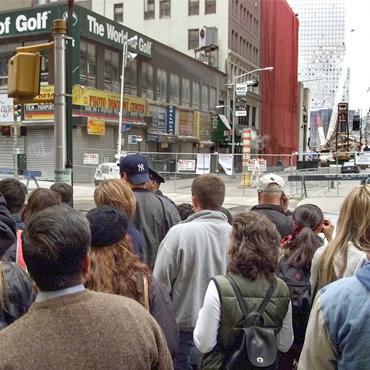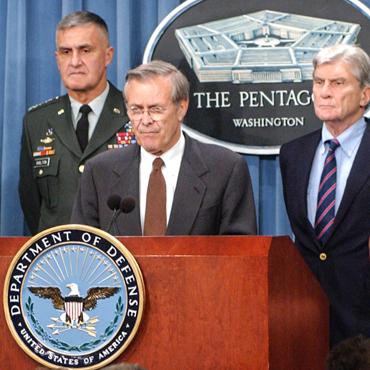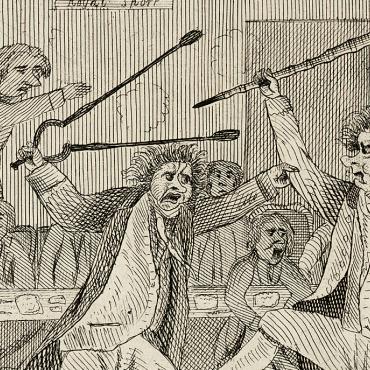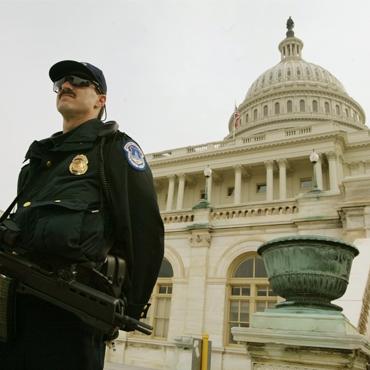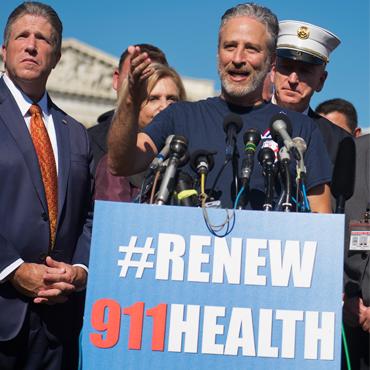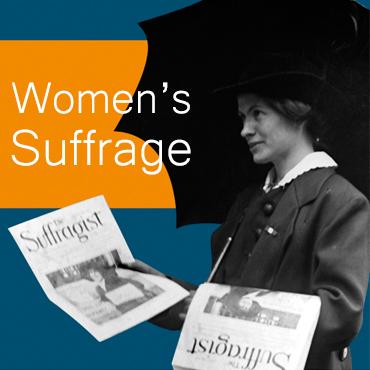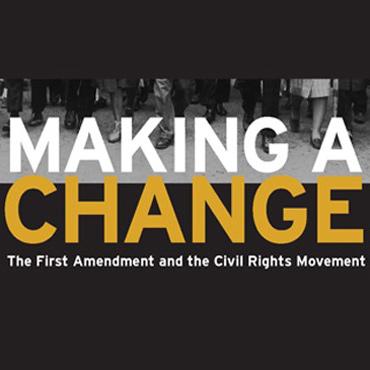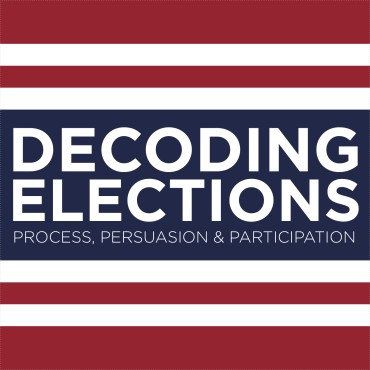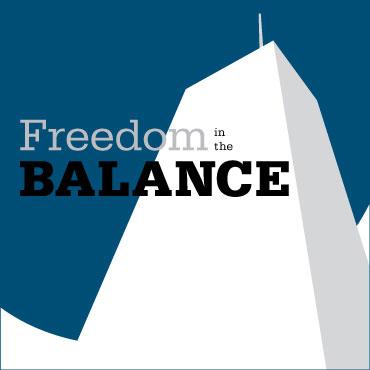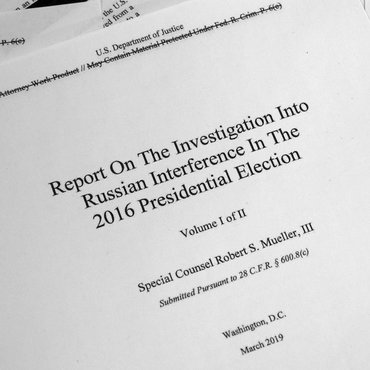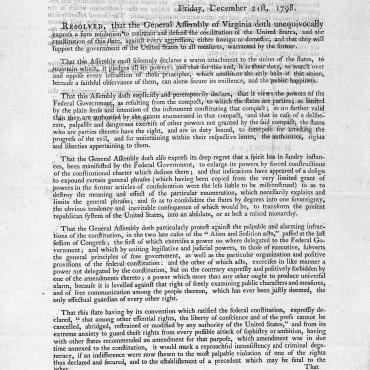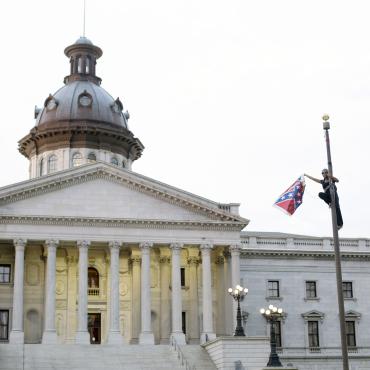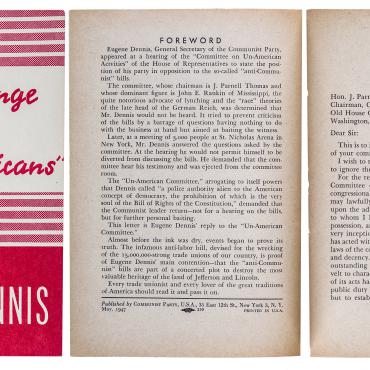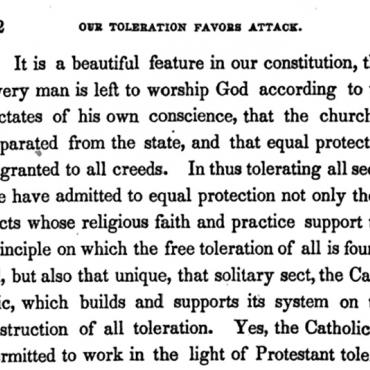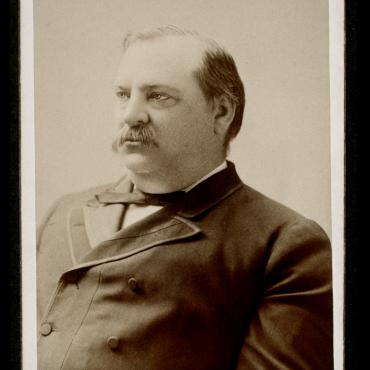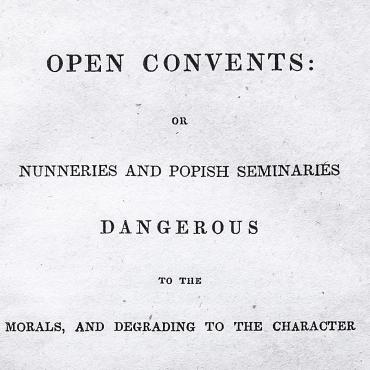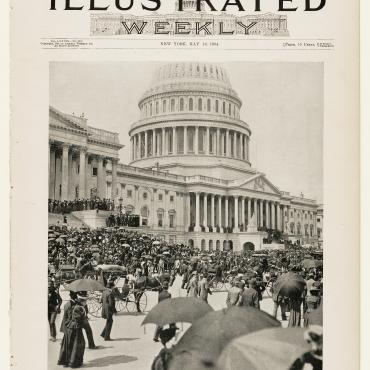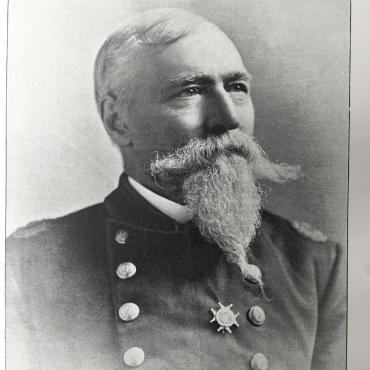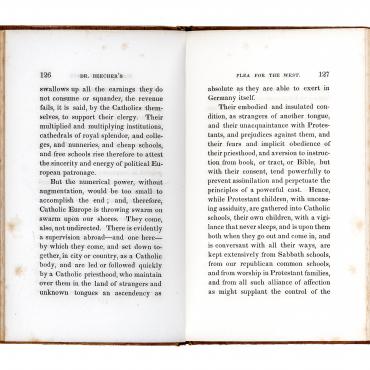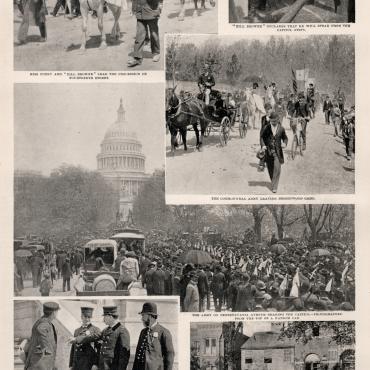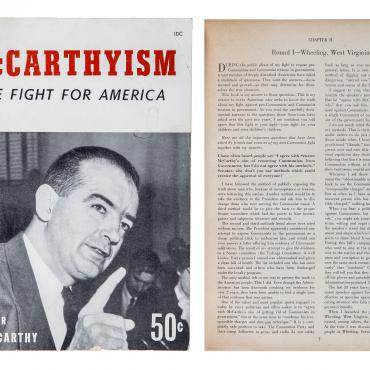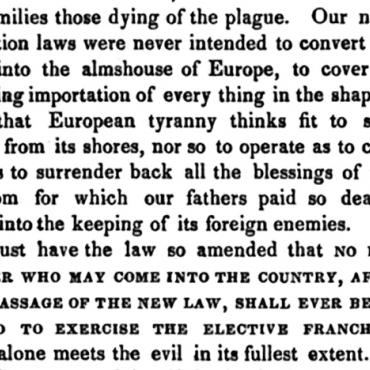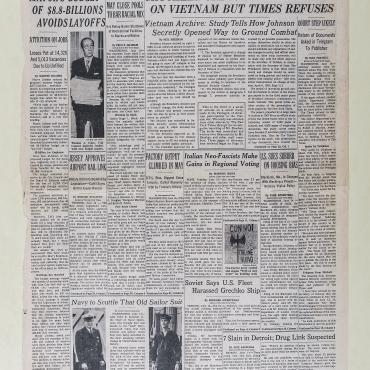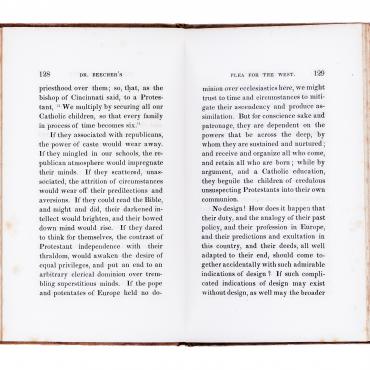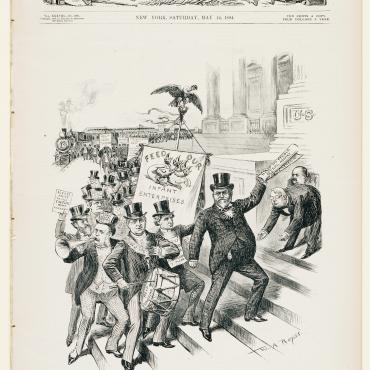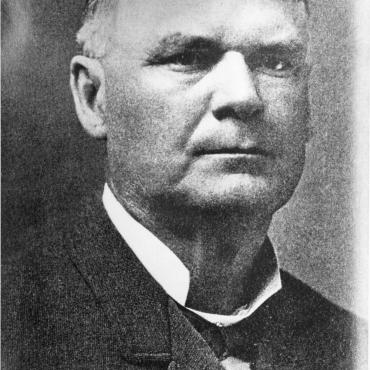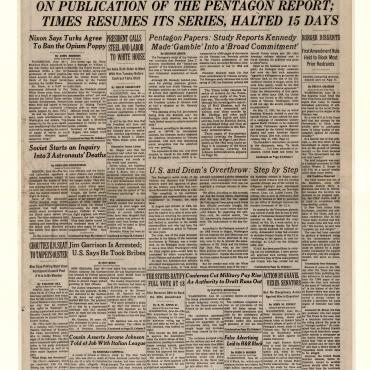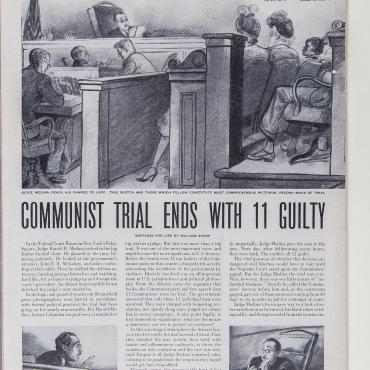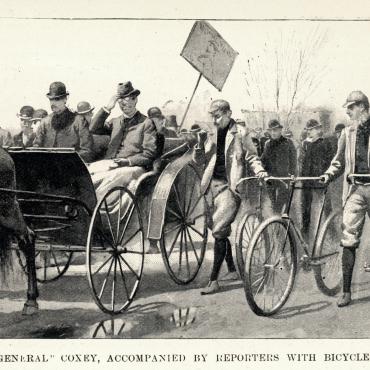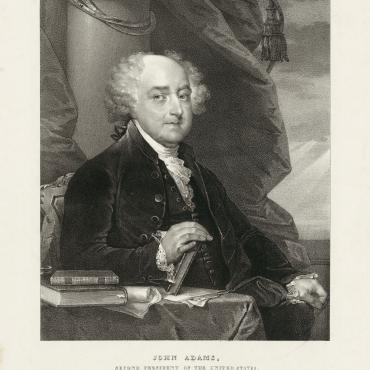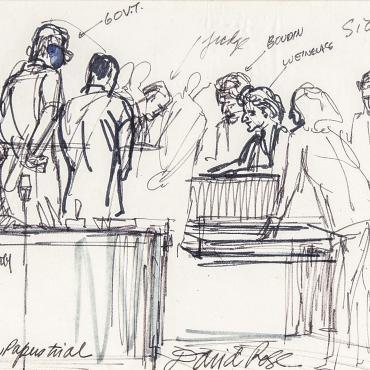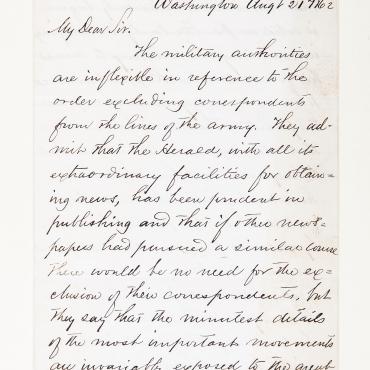2015: Debating the USA PATRIOT Act
Should Congress renew an act that expands government power to combat terrorism, but also infringes on citizens' privacy?
Get even more great free content!
This content contains copyrighted material that requires a free NewseumED account.
Registration is fast, easy, and comes with 100% free access to our vast collection of videos, artifacts, interactive content, and more.
NewseumED is provided as a free educational resource and contains copyrighted material. Registration is required for full access. Signing up is simple and free.
With a free NewseumED account, you can:
- Watch timely and informative videos
- Access expertly crafted lesson plans
- Download an array of classroom resources
- and much more!
- National Security
- Politics
- 9-12
- College/University
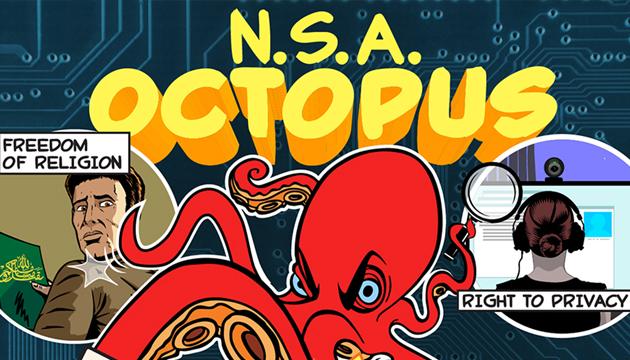
This poster produced by the American Civil Liberties Union warns of the National Security Agency's reach into Americans' lives.
Looking Back: 9/11 Connections
Use the artifact viewer to explore the image below and discuss the following questions:
- What happened/is happening in this image? What story does it tell?
- How is this image connected to the events of Sept. 11, 2001?
- How could you use this image to make an argument about the state of freedom in the U.S.? About national security?
What type of security legislation would you support 15 years after your country suffered a catastrophic foreign attack?
You are a U.S. senator facing an upcoming vote on whether to renew provisions of a law that gives the government wide-reaching powers to investigate possible terrorists and terrorism organizations. The law was passed more than a decade earlier, in the wake of a devastating terrorist attack. In the years since, there has been intense debate over whether the law goes too far. A particularly controversial portion of the law gives the government the power to collect Americans' phone call records and emails in bulk for potential use in investigations.
You know that your constituents want to be safe, and you want to use your position of power to help prevent future terrorist attacks. However, some of your constituents say this law gives the government too much power, violates their privacy and makes them feel wary of exercising their freedom of speech.
How will you vote?
-
Vote to renew the provisions.
Protecting the country from future terrorist attacks is the most important goal. If your constituents are not safe, then they cannot freely exercise their freedoms.
-
Do not vote to renew the provisions.
The powers they grant the government go too far and are no longer needed. If your constituents do not feel free, then something is wrong.
-
Propose a new, alternative law that keeps many of the expanded government powers in the original law, but more closely regulates the bulk data collection.
Attempt to find a more delicate balance between empowering terrorism investigations and protecting citizens’ rights.
-
Abstain from the vote.
This issue is too controversial, and a vote either way is likely to alienate a large portion of your constituents.
-
Something else.
Explain your idea.
- What are your responsibilities as an elected representative? How should constituents’ feedback – exercising their right to petition the government – affect your actions?
- Did the 9/11 terrorist attacks forever change the balance between security and freedom? Will things ever go back to the way they were before the attacks? Would you want them to?
- Do you think the government should have access to the phone calls and emails of suspected terrorists? How should it identify “suspected terrorists”?
- How would it make you feel if you found out that the government could access your phone calls and emails? Would you change what you said/wrote in any way?
- Does knowing the government has far-reaching powers to gather information on individuals phone calls, emails, Internet usage, etc. suppress free speech?
- What effect might another major terrorist attack on U.S. soil have on individuals’ ability to exercise their freedom?
Have students use the Analyzing Evidence and Making Your Argument handouts to collect and organize additional information about the case, then form an argument supported by evidence. Give groups 30 minutes to prepare, or assign as homework. (Note: Students may wish to organize their sources and evidence using a spreadsheet, such as Google Sheets.)
-
Common Core State Standards: CCSS.ELA-LITERACY.CCRA.SL.3
Evaluate a speaker's point of view, reasoning, and use of evidence and rhetoric. -
Common Core State Standards: CCSS.ELA-LITERACY.CCRA.SL.4
Present information such that listeners can follow the line of reasoning and the organization, development, and style are appropriate to task, purpose, and audience.
-
NCSS C3 Framework: D4.1.6-8 and D4.1.9-12
6 - 8: Construct arguments using claims and evidence from multiple sources, while acknowledging the strengths and limitations of the arguments. 9 - 12: Construct arguments using precise and knowledgeable claims, with evidence from multiple sources, while acknowledging counterclaims and evidentiary weaknesses.
-
ISTE: 7d. Global Collaborator
Students explore local and global issues and use collaborative technologies to investigate solutions.
-
National Center for History in the Schools: NCHS.US History.Era 10
Standard 1: Recent developments in foreign policy and domestic politics Standard 2: Economic, social, and cultural developments in contemporary United States
-
Center for Civic Education: CCE.V
A. What is citizenship? B. What are the rights of citizens? C. What are the responsibilities of citizens? D. What civic dispositions or traits of private and public character are important to the preservation and improvement of American constitutional democracy? E. How can citizens take part in civic life?

